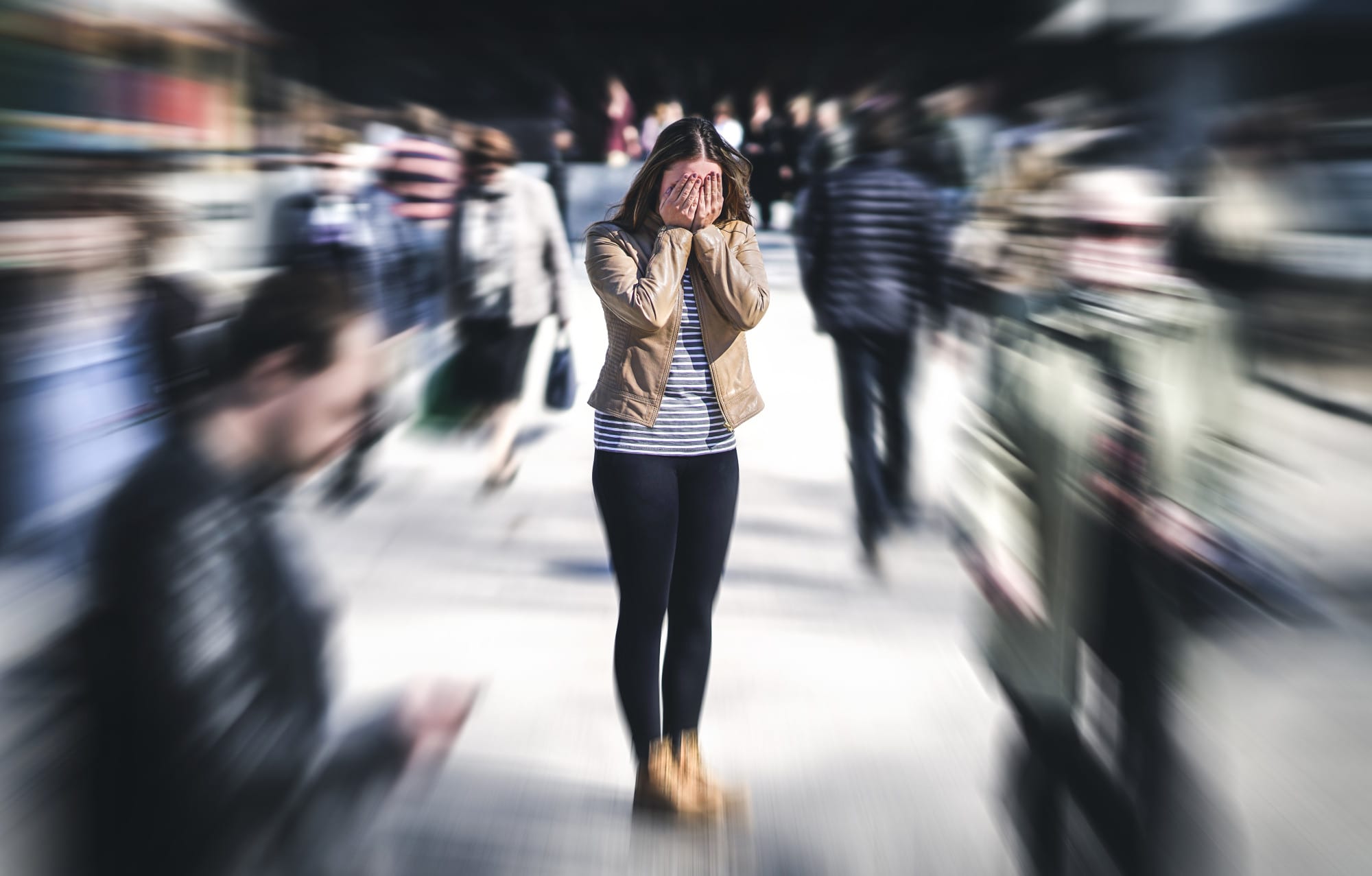Do you sometimes find yourself going about your everyday life only to be gripped by a sense of worry and unease? Your heart might start pounding, you might start breathing faster, and your head might start swimming with “what ifs.”
If this sounds familiar, you might be one of the 40 million adults in America that struggle with an anxiety disorder.
Anxiety is the most common mental illness in the United States. While there isn’t a cure, there are ways to cope with anxiety and live a normal life. The next time you start to feel that uncomfortable sensation rising up, keep these seven tried-and-true coping strategies in mind.
1. Practice Mindful Movement
Gentle exercise like yoga, dance, or walking, can help you release the pent-up physical energy that sometimes comes with anxiety. The next time you feel anxious, get up and move for 15 minutes, being mindful of how your body feels the whole time.
As an added bonus, exercise releases endorphins (sometimes called feel-good chemicals) that can give you a natural mood boost.
2. Ground Yourself
Sometimes anxiety can pull us out of the present moment and launch us into a void of worry and fear. In times like this, grounding exercises can help bring you back to reality.
An easy grounding exercise to start with is to pick an object to hold in your hands. Any object will work, but sometimes it’s best to hold something that’s somewhat heavy. Then, spend five minutes focusing on the object while breathing deeply and naming as many of its physical attributes as you can.
What color is it? Does it have a particular smell or temperature? How does it feel to hold it in your hands?
Continue this exercise until you’ve gathered yourself and are feeling calm.
3. Try Deep Breathing Exercises
Even though this strategy may sound cliche, it’s incredibly useful for a few reasons.
First, anxiety is often accompanied by fast, shallow breaths. These deprive your brain of oxygen, leaving you feeling dizzy and faint. A lack of oxygen also makes it more difficult to think clearly, compounding the effects of anxious thoughts.
Second, deep breathing triggers a “calm response” in your brain. Your brain then sends messages to the rest of your body to relax by slowing your heart rate and lowering your blood pressure.
Third, deep breathing is something you can do anywhere, any time. Try this easy 4-7-8 exercise to start: take a deep breath in for 4 counts, hold it for seven, and breathe out slowly for eight counts. Repeat until the panic has passed.
4. Do Something Creative
It’s no coincidence that some of the most famous writers, artists, and musicians throughout history struggled with anxiety. Research has shown a clear link between anxiety and creative tendencies.
Creative activities like journaling, dancing, or playing and listening to music are the perfect outlet for negative energy. They give you a chance to simultaneously focus on what you’re feeling and step back to view it from an outside perspective.
If you have any favorite artistic outlets, try channeling your anxiety into them for some relief. If not, why not take up painting, sculpting, or writing? Just remember: it’s about the calm of the process, not creating a perfect end product.
5. Identify Your Anxiety Triggers
Do you notice yourself getting cold sweats every time you attend a social event? Is there a trend between how much caffeine you drink and how nervous you are at work? Pay attention—these things could be triggering some of your anxiety attacks.
Some common triggers, like caffeine, alcohol, and staying up too late, can be removed from your life entirely. But others, like riding public transportation or attending family gatherings, might have to stay.
It’s important to learn what your anxiety triggers are so you can manage them appropriately. Keep a running list of situations that cause you to feel anxious for a few weeks, and then see if you can spot any trends. For the triggers you can’t avoid, just being prepared to deal with them ahead of time can make them much more manageable.
6. Dispel Lies with the Truth
Patterns of “disaster thinking” (also called catastrophizing) are a common part of anxiety. These thought patterns fixate on potential bad outcomes to situations and blow them out of proportion. An example of disaster thinking goes something like this:
“If I don’t pass this test even though I studied, I’ll fail the whole class. That means I’ll never be able to graduate from college. Then I’ll be in debt for the rest of my life and my whole family will be disappointed in me.”
If you find yourself in a pattern of irrational thoughts like these, call yourself out by saying “stop!” Then, take some deep breaths, and remind yourself that one bad thing happening doesn’t mean everything will be bad from here on out. Try to replace that negative thought with a potential positive outcome—it may help to physically write it out.
Sometimes misconceptions people hold about anxiety can compound the other fears, making them even worse. These myths are perpetuated by people who don’t understand the illness and can make people ashamed of their symptoms. If you find yourself holding onto ideas like “anxiety goes away on its own” or “alcohol and drugs will reduce your symptoms,” it’s time to do some research into reputable sources to find out the truth.
7. See a Licensed Therapist
Going to therapy for the first time is scary, especially if you’re already struggling with anxiety. Due to fear, stigma, cost, and other factors, fewer than 37% of people with anxiety disorders receive treatment.
Even so, therapy has shown to be very effective at treating anxiety and reducing its symptoms. Contact your health insurance provider to find out what your coverage is for mental health treatment and to get a list of clinicians in your area. If you don’t have mental health coverage, see if your city offers free or reduced-cost counseling or check into an online therapy service.
Remember, there’s no shame in asking for help. It takes a lot of courage to start therapy for the first time, but your mental health is worth it.
Next Time You’re Feeling Unsettled, Try One of These Ways to Cope with Anxiety
Just because you struggle with anxious thoughts and feelings doesn’t mean you have to let them run your life. There are many more ways to cope with anxiety than those listed here, but these seven strategies are a great place to start.
Make sure to check out our Self Improvement archives for more tips on living a healthy, fulfilling life.







